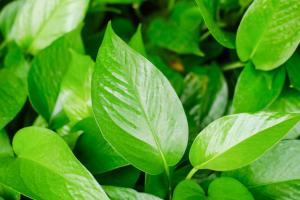What Plants Are Affected by Black Walnut Trees
Black walnut trees are native to North America and are commonly found in forests, parks, and backyards. While these trees are prized for their wood and nuts, they have a reputation for being allelopathic, meaning they release chemicals that inhibit the growth of nearby plants. These chemicals, called juglones, can be toxic to some plants and cause them to wilt, yellow, and eventually die. Here are some plants that are affected by black walnut trees:
Tomatoes
Tomatoes are sensitive to juglones and can suffer from stunted growth, yellow leaves, and reduced fruit production when grown near black walnut trees. In severe cases, the plants may wilt and die. To avoid this, it is recommended to plant tomatoes at least 50 feet away from black walnut trees or in containers that are not in contact with the ground.
Peppers
Peppers are also susceptible to juglones and can exhibit symptoms similar to tomatoes. They may also develop discolored spots, necrosis, and reduced yields. It is recommended to plant peppers at least 50 feet away from black walnut trees or in raised beds filled with soil that is not contaminated with juglones.
Blueberries
Blueberries are generally not affected by juglones, but they are sensitive to the soil conditions around black walnut trees. Black walnut trees have a deep root system that can deplete the surrounding soil of nutrients and make it too acidic for some plants, including blueberries. Additionally, the dense shade cast by black walnut trees can reduce the amount of sunlight that reaches blueberry bushes, which can affect their growth and fruit production. It is recommended to plant blueberries at least 50 feet away from black walnut trees or in raised beds with fresh soil and good drainage.
Apples
Apple trees can be affected by juglones, but the severity of the damage depends on the variety and age of the tree. Young apple trees are more sensitive to juglones and may exhibit stunted growth and leaf drop. Mature apple trees are more tolerant and can still produce fruit, but the fruit may be smaller and have a shorter shelf life. It is recommended to plant apple trees at least 50 feet away from black walnut trees and to avoid using black walnut wood chips as mulch around apple trees.
Roses
Rose bushes are also sensitive to juglones and can suffer from wilting, yellowing, and stunted growth when planted near black walnut trees. The chemicals released by black walnut trees can also make the soil too acidic for roses, which prefer a slightly alkaline pH. It is recommended to plant roses at least 50 feet away from black walnut trees or in raised beds with fresh soil and regular pH testing.
Conclusion
While black walnut trees are beautiful and valuable, they can also pose challenges for gardeners and landscapers. Knowing which plants are affected by juglones can help you plan your garden and avoid potential problems. Planting susceptible plants at least 50 feet away from black walnut trees, using raised beds with fresh soil, and avoiding black walnut wood chips as mulch can help minimize the effects of juglones and create a thriving garden.

 how many times do yo...
how many times do yo... how many planted tre...
how many planted tre... how many pine trees ...
how many pine trees ... how many pecan trees...
how many pecan trees... how many plants comp...
how many plants comp... how many plants can ...
how many plants can ... how many plants and ...
how many plants and ... how many pepper plan...
how many pepper plan...
































